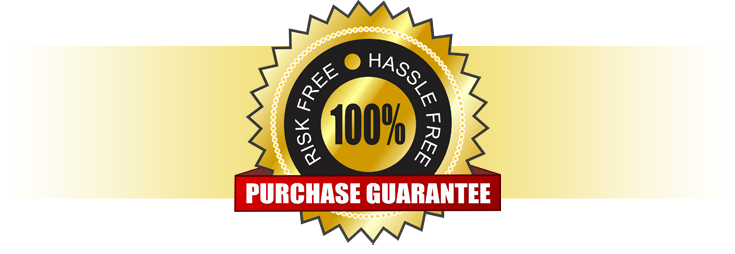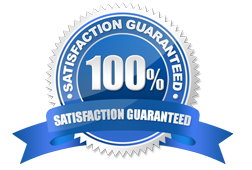Purpose
The main objective of this Standard Operation procedure is to develop a safe and systematic practice for collecting and analyzing samples of toxic wastewater from industries in order to determine the level of toxicity. The parameters for toxicity are in accordance with the international environmental law and policies as stipulated by the Center for International Environmental Law (CIEL). The procedures serve to ascertain whether the levels of toxicity are within the allowable limits of the CIEL and the wastewater pretreatments agreements of the company.
Applicability
The practices highlighted in this SOP are pertinent to environmental inspectors who evaluate the compliance regulations of wastewater treatment by various manufacturing industries, water treatment, and sewerage services companies (Philippe, 2006). In addition, this SOP practices are helpful to environmental compliance managers of factories that release wastewater to the nearby water bodies.
Summary
The international environmental law requires that factories should comply with the policy of environmental conservation. The fundamental approach to ensuring this is through ensuring that toxic levels of wastewater released by the factories are kept at the minimum levels possible. Detailed Chemistry is done in order to assess the toxicity of the effluent water from the Wastewater Treatment plant of the factory. In order to facilitate the analysis of levels of toxicity of the wastewater, samples of the pretreated water released by the company are required. Water samples can be collected instantaneously or compositely. The devices used to collect the samples can be either automatic samplers or Sample Dip Poles. Automatic samplers collect the wastewater samples periodically after a predetermined duration of time. After sampling, the effluent sample is preserved in more sample containers for future references when need arises. The sample is transported to CIEL laboratories under iced conditions in order to determine the toxicity levels (Spellman, 2010). The test results are compared with the allowable levels as stipulated by CIEL in the international environmental law and policy (Kaul, 2002).
Definitions
- Toxicity levels refer to the percentage of toxic compounds that makes the wastewater harmful to the environment and its inhabitants. Some of the parameters used to evaluate toxicity levels include (Spellman, 2010):
- Carbonaceous Biochemical Oxygen Demand (cBOD), which is the quantity of oxygen that aerobic microorganisms need in order to putrefy the organic matter found in the wastewater sample. The test results for cBOD describe the potential harm of the wastewater to the environment.
- Escherichia Coli, whose presence denotes fecal contamination of the effluent water
- Faecal Coliform, whose presence denotes human sewage contamination
- Other parameters for describing toxicity levels include alkalinity, oil and grease scum, water hardness, and organic carbon levels are stated in the international environmental law and policies.
- Center for International Environmental Law (CIEL) is an international organization based in Washington DC, and has the responsibility of ensuring that industries protect the environment in order to promote human health and protect the environment. The CIEL uses existing international laws to foster environmental protection.
- Sampler refers to the environmental compliance inspector who has the responsibility of collecting wastewater samples for analysis and reporting the test results in accordance with the stipulated values under the International Environmental Laws and policies.
- Detailed Chemistry refers to an in depth chemical analysis of the effluent with regard to the above parameters used to describe toxicity levels of the wastewater. Effluent in this case refers to the wastewater that the factory releases to the environment, which might have undergone treatment or not.
- Factory refers to the specific industry that discharges wastewater to the environment directly or through a wastewater treatment plant.
Health and safety issues
Wastewater from factories is broadly categorized into sanitary wastewater and process wastewater. In some cases, it can be a combination of both sanitary and process wastewater. Irrespective of the type of the wastewater, the sampler should treat all wastewater as if they contain a toxic compound until the time when the test results reveal otherwise. This toxic compound can cause human illness; therefore, the water samples should be handled with a lot of care (Spellman, 2010). The personnel in charge of collecting the wastewater samples should put on protective gloves, and the containers that hold the wastewater samples requires handling with adequate care (Spellman, 2010). The sampler should also put on other protective accessories such as waterproof safety boots that are steel-toed, protective headgear, eyeglasses, and earplugs in order to shield the sampler from environmental hazards. The working environment may change, and the sampler has to make sure that he ascertains the state of the working conditions before working. For example, slippery surfaces and edged working surfaces require testing prior to working.
Cautions
The sampler’s working environment is filled with various toxic chemicals, which may be present in the wastewater sample and those chemicals used in the preservation of the wastewater samples. For instance, Concentrated Sulfuric acid, Sodium Peroxide, and Strong Nitric acidare used in the preservation of the wastewater sample and cyanide samples. The three compounds are toxic and corrosive, implying that samplers have to handle them with great care. In addition, they should avoid skin contact with the above preservatives (Spellman, 2010).
In order to avoid contaminating the waste sample, the samplers should make sure that introduction of unnecessary contaminants to the wastewater samples are avoided at all costs. This is because the primary objective of wastewater sampling is to bring out the true state of the wastewater from the factories without compromise (Spellman, 2010).
Personnel Qualifications
The development of this SOP is meant to outline systematic procedures for Wastewater inspectors. All other personnel such as environmental compliance managers of factories, who may undertake the practices highlighted in this SOP must have the fundamental Wastewater Management Training and Wastewater Inspector Accreditation from NSF international. Another key skills requirement is basic expertise in conducting onsite inspections on wastewater treatment plants. In addition, the Certificate of Accreditation from NSF must be valid with a maximum duration of five years since the date of issuance. Technical expertise concerning health and environmental sciences is a significant requirement for personnel who will use this SOP to sample wastewater from factories (Philippe, 2006).
Additional training requirements for this SOP include six hours refresher training on sampling techniques, and on-the-job training concerning environmental ethics and ethical code of conduct associated with reporting cases involving violation of environmental laws.
[meteor_slideshow slideshow="slide3"]Are you looking for a similar paper or any other quality academic essay? Then look no further. Our research paper writing service is what you require. Our team of experienced writers is on standby to deliver to you an original paper as per your specified instructions with zero plagiarism guaranteed. This is the perfect way you can prepare your own unique academic paper and score the grades you deserve.
[meteor_slideshow slideshow="slide2"]Use the order calculator below and get ordering with idealtermpapers.com now! Contact our live support team for any assistance or inquiry.
[order_calculator]






 info@idealtermpapers.com
info@idealtermpapers.com






